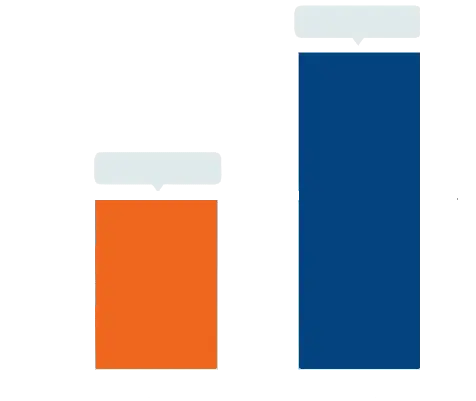Advancing Precision in Flow Measurement: The Role of Mass Flow Meter Coriolis Technology
The Mass Flow Meter Coriolis technology is transforming the global flow measurement industry through its unmatched accuracy and reliability. As industries such as oil and gas, chemical processing, food and beverage, and pharmaceuticals demand higher precision in fluid measurement, Coriolis mass flow meters have emerged as a preferred choice. These devices measure the mass flow rate of liquids and gases directly, providing real-time data essential for optimizing production, enhancing efficiency, and ensuring quality control.
Understanding Coriolis Mass Flow Meters
Coriolis mass flow meters operate based on the Coriolis effect—a physical principle that describes how a moving mass within a rotating system experiences a force. In these meters, fluid flows through one or more vibrating tubes. As the fluid moves, it causes a measurable phase shift in the tube’s vibration, which is proportional to the mass flow rate. Simultaneously, the meter can measure fluid density, temperature, and other parameters, offering comprehensive insights into the process.
Unlike traditional flow meters that rely on volume measurement, Coriolis meters directly measure mass flow, eliminating the need for temperature and pressure compensation. This capability makes them particularly useful in industries where process accuracy and material accountability are critical, such as petrochemical refining, water treatment, and biopharmaceutical manufacturing.
Advantages of Coriolis Mass Flow Technology
One of the main advantages of Coriolis mass flow meters is their superior measurement accuracy. They typically offer an error margin as low as ±0.1%, far surpassing other flow measurement technologies like turbine or differential pressure meters. This high accuracy ensures consistent product quality and process optimization.
Additionally, these meters are highly versatile, capable of measuring various fluids, including viscous liquids, slurries, and gases. Their maintenance-free operation—since they have no moving parts—reduces downtime and long-term operational costs. Coriolis meters are also self-draining and resistant to corrosion, making them suitable for hygienic applications in the food, beverage, and pharmaceutical sectors.
Another major benefit is their multivariable capability. A single Coriolis meter can measure mass flow, density, and temperature simultaneously. This integration allows operators to calculate concentration, viscosity, and other parameters in real time, streamlining process control and reducing the need for multiple instruments.
Market Drivers and Industrial Applications
The growing emphasis on process automation, energy efficiency, and accurate resource monitoring is driving the demand for Coriolis mass flow meters globally. In the oil and gas sector, these meters are used for custody transfer, refining, and pipeline monitoring—applications that require the highest level of measurement precision.
In the chemical and petrochemical industries, Coriolis meters are crucial for blending and batching processes, ensuring that chemical reactions occur with precise material proportions. The food and beverage industry employs these meters to maintain consistency in liquid ingredients, while pharmaceutical manufacturers rely on them for sterile, high-purity fluid measurement.
Furthermore, with the global push toward sustainability and cleaner energy, Coriolis flow meters are gaining traction in renewable energy sectors such as biofuels and hydrogen production. Their ability to handle varying fluid densities and complex mixtures makes them indispensable for these emerging applications.
Technological Innovations Shaping the Market
Continuous innovation is enhancing the performance and capabilities of Coriolis meters. Modern designs feature digital signal processing (DSP) for improved sensitivity and reduced noise interference. Advanced wireless communication and IoT integration allow remote monitoring and real-time diagnostics, empowering industries to adopt predictive maintenance strategies.
Manufacturers are also focusing on miniaturized and low-power models to cater to small-scale or portable applications, such as laboratory research or mobile process units. Additionally, the development of high-pressure and cryogenic Coriolis meters is expanding their use in demanding industrial environments.
As industries continue to modernize their operations, the adoption of smart Coriolis flow meters is expected to rise, contributing significantly to process automation and data-driven decision-making.
The Future of Coriolis Flow Measurement
The future of the Coriolis mass flow meter market looks promising, with strong growth prospects across multiple sectors. Increasing industrial digitalization, the need for high-precision measurement, and environmental regulations are all driving investments in advanced flow metering solutions.
As part of the global Industry 4.0 movement, Coriolis technology will continue to evolve—becoming smarter, more compact, and more connected. These innovations will further strengthen its role as the gold standard in flow measurement, helping industries optimize processes, minimize waste, and achieve greater sustainability.
FAQs
1. What is a Coriolis mass flow meter?
A Coriolis mass flow meter measures the mass flow rate of fluids directly using the Coriolis effect. It detects the phase shift in vibrating tubes caused by fluid motion, offering precise flow and density measurements.
2. What are the key advantages of using Coriolis flow meters?
Coriolis flow meters provide superior accuracy, handle various fluid types, require minimal maintenance, and offer multivariable measurements such as mass flow, density, and temperature—all in one device.
3. Which industries commonly use Coriolis mass flow meters?
Coriolis meters are widely used in oil and gas, chemical processing, food and beverage, pharmaceuticals, water treatment, and renewable energy industries due to their precision and reliability.
More Related Reports:
wind powered water pumps market


